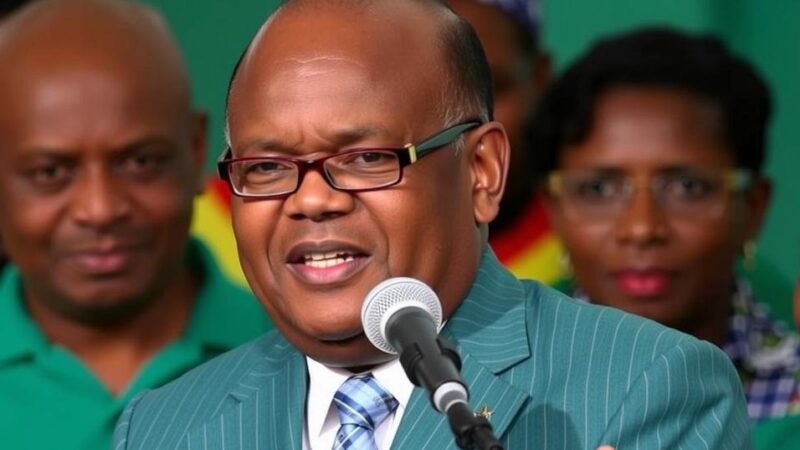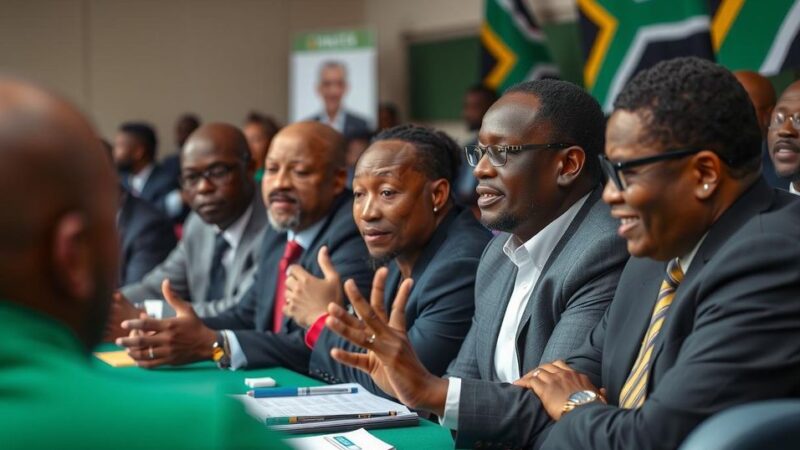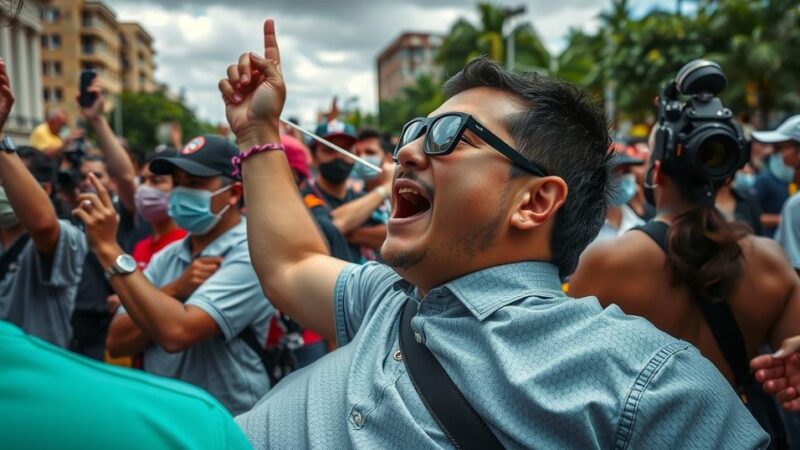In response to Hurricane Helene’s devastating impact, presidential candidates Kamala Harris and Donald Trump have altered their campaign strategies. Harris returned from a rally in Las Vegas to engage in emergency briefings, while Trump traveled to Georgia to assess the damage. Both candidates focus on the humanitarian crisis as they prepare for the November election, with Trump criticizing Harris for her absence in affected areas and alleging shortcomings in federal response. The White House emphasizes continued support and communication with state officials as recovery efforts unfold.
In the aftermath of Hurricane Helene’s catastrophic impact, both major presidential candidates have altered their campaign itineraries to address the unfolding humanitarian crisis. Vice President Kamala Harris, the Democratic nominee, returned early from a scheduled rally in Las Vegas to engage in emergency briefings, while former President Donald Trump directed his efforts towards Georgia, assessing the storm’s damage firsthand. The hurricane has resulted in over 100 fatalities, primarily due to severe inland flooding in North Carolina, prompting both leaders to adapt their strategies as they approach the November election, particularly in battleground states like North Carolina and Georgia. During a rally in Las Vegas, Harris expressed commitment to supporting affected communities: “we will stand with these communities for as long as it takes to make sure that they are able to recover and rebuild.” Conversely, Trump, speaking at a rally in Erie, Pennsylvania, labeled the storm a “big monster hurricane” that exceeded expectations in its ferocity. Upon his arrival in Valdosta, Georgia, he criticized Harris for her absence in the stricken areas, suggesting that her campaign activities were inappropriate given the disaster. Furthermore, he accused the Biden administration of ineffectiveness in their federal response. Despite Trump’s criticisms, the White House confirmed that President Biden had been in contact with state officials from the affected areas. Critiques from Trump also included allegations of intentional shortcomings in assistance to Republican-leaning regions, although evidence for these claims was lacking. Harris and the Biden administration have committed to regular communications with state leaders to ensure effective measures are implemented in the recovery process. The Federal Emergency Management Agency (FEMA) is actively coordinating the federal response to the hurricane, utilizing a temporary funding bill aimed at accelerating disaster relief. The situation continues to develop as both candidates seek to balance their campaign responsibilities with their obligations to their constituents in crisis. President Biden characterized Hurricane Helene as a “historic, history-making storm” and plans to visit affected areas while prioritizing the emergency response efforts. In summary, as both Harris and Trump grapple with the consequences of Hurricane Helene, their adjustments reflect the delicate interplay between political campaigns and urgent humanitarian needs.
The Hurricane Helene disaster has disrupted the 2024 presidential campaign landscape, forcing both Kamala Harris and Donald Trump to shift their focus from electoral activities to disaster response. As one of the most destructive hurricanes in recent memory, Helene has underscored the critical intersection between natural disasters and political accountability, especially in pivotal electoral battlegrounds such as North Carolina and Georgia. The aftermath of such calamities often serves as a test of leadership for candidates, demanding a balance between campaigning and aiding affected communities. In this context, both candidates are navigating their political strategies in light of the ongoing humanitarian crisis that has arisen from the storm’s destruction.
The events following Hurricane Helene’s devastation illustrate the complexities candidates face during election periods when confronted with natural disasters. Kamala Harris and Donald Trump have both adjusted their campaign plans in response to the tragedy, highlighting their intentions to provide support to affected communities. As the situation evolves, the effectiveness of their responses may heavily influence public perception and ultimately, the outcome of the upcoming presidential election. Their actions amidst the disaster reveal significant insights about leadership and accountability in times of crisis.
Original Source: apnews.com







